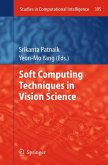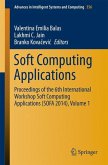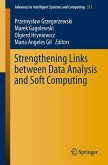The Soft Computing techniques, which are based on the information processing of biological systems are now massively used in the area of pattern recognition, making prediction & planning, as well as acting on the environment. Ideally speaking, soft computing is not a subject of homogeneous concepts and techniques; rather, it is an amalgamation of distinct methods that confirms to its guiding principle. At present, the main aim of soft computing is to exploit the tolerance for imprecision and uncertainty to achieve tractability, robustness and low solutions cost. The principal constituents of soft computing techniques are probabilistic reasoning, fuzzy logic, neuro-computing, genetic algorithms, belief networks, chaotic systems, as well as learning theory. This book covers contributions from various authors to demonstrate the use of soft computing techniques in various applications of engineering.
From the book reviews:
"This book is a collection of recent applications of soft computing in medical imaging, the automotive industry, and robotics. ... the book can be used as reference textbook to give beginners an idea of how to apply soft computing algorithms to practical applications." (Jindong Liu, Computing Reviews, June, 2014)
"This book is a collection of recent applications of soft computing in medical imaging, the automotive industry, and robotics. ... the book can be used as reference textbook to give beginners an idea of how to apply soft computing algorithms to practical applications." (Jindong Liu, Computing Reviews, June, 2014)








